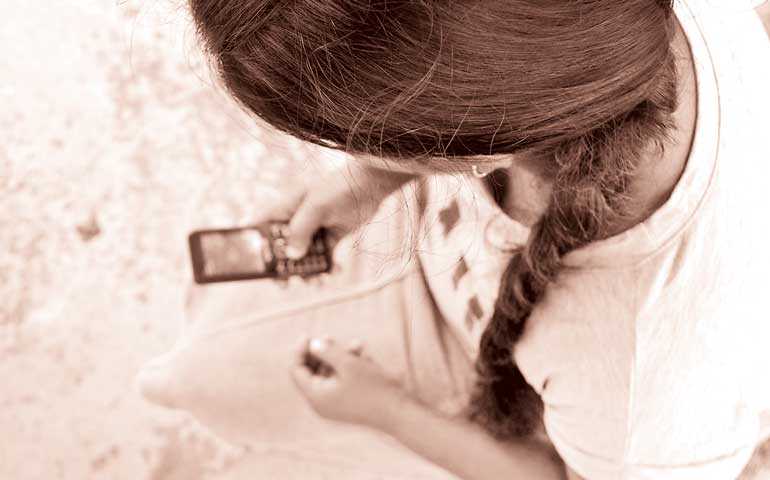Friday Feb 20, 2026
Friday Feb 20, 2026
Thursday, 5 March 2020 02:05 - - {{hitsCtrl.values.hits}}

Kalyani Madushika* remembers the floods that devastated her village back in 2016. “Everything was destroyed,” recalled the widow and mother of two. But what she remembers most about that difficult time was not the destruction left behind by the floodwaters.
“I went to the Grama Niladhari’s office to see about flood relief,” she remembers. He agreed to her request, but in exchange for a favour that shocked the 28-year-old.
“Sir, help me if you can, but I am not a whore,” she remembers shouting, before running out of the room. “I couldn’t eat or sleep properly for several days and I would get angry with my children for the slightest issue. I still get tearful when I think about this incident because we were badly in need of relief.”
Kalyani’s story is one of several documented by the Center for Equality and Justice (CEJ) on their mission to shed light on sexual bribery amongst women affected by war.
Although sexual bribery is hardly a novel issue, the subject remains ambiguous. CEJ attributes this to the unfamiliar terminology surrounding it, making it difficult to pinpoint or identify the actual offence. Sexual bribery is thus silenced or kept in the dark, despite provisions concerning the issue with regard to public officials being discussed under the Bribery Act (No. 2 of 1965) with several suggested amendments currently under consideration.
CEJ began their research on this issue around 2016 and their findings since then have expanded beyond geography, culture, age, economic, religious and socio politics. Most of the women from their study shared a commonality; they were all women affected by the war. This ranged from families like Kalyani’s, where the male breadwinners were either killed in combat, injured and incapable of supporting their families or had disappeared or had abandoned their families.
The Household Income and Expenditure Survey (HIES) of 2012 by the Department of Census and Statistics found that 1.1 million (23%) out of 5.2 million households in Sri Lanka, were headed by women, over half of whom were widows1.
In a study published in 20152 conducted with 500 women from Ampara, over 55% had to take on the responsibility as primary provider due to the death of their husband, followed by divorce, disappearance or incapacity of the husband to take on the role of breadwinner. Another study3 of 351 women from the district of Anuradhapura found that only 24% of women received the salary or the pension of the dead husband, while 72% did not. Their economic vulnerability and lack of a male presence at home make these women easy targets for predatory officers and officials. Most survivors of such offences stay silent due to the fear created by the power dynamics between them and the assailant, together with the abuse, mental and emotional stress that follows. “I didn’t complain about him to anyone,” admitted Grace Jensi* from Mannar. The 45-year-old lived alone, having been abandoned by her estranged husband over a decade ago. Even as a senior member of her community, Grace had faced many situations where Government officials nagged her for her phone number or made vulgar requests and demands in exchange for the assistance or documents she was entitled to, by law.
“Who would believe that this charming, considerate and respectable gentleman would proposition his own relative?” she asks bitterly over a recent incident involving a young cousin who works in a State office. For single, independent women like Grace, the issue does not sideline them due to their maturity. Despite being a senior member of her village, she felt isolated and disheartened by the consequences she would have faced in confronting the official. “They would end up defaming my character for making such a despicable accusation!”
Sexual bribery has thus been able to infiltrate even the most routine or commonplace day to day activities. But the reason behind its ambiguity is because of the domino effect it has on a survivor, making room for other complications and the effect such an offence can have on their children and families. The psychological and emotional trauma combined with societal and collective pressure make it challenging for any voice to come forward. Many survivors are also unwilling to confront the attackers due to the fear of their power and possible consequences to be endured. Even with so many obstacles set against them, it has done little to deter women like Kalyani who fight back and confront such injustices as a responsibility they feel towards other women in similar situations. “Despite all that I have suffered, I am much stronger now and I am willing to speak about the incidents of sexual bribery I have faced, in public. Let them say whatever they want about me, I am not scared.”
Footnotes
1 “Study On The Economic, Social And Cultural Status Of Female Heads Of Households In Sri Lanka Ampara, Anuradhapura And Puttalam District.” FOKUS WOMEN, 2014.
2 A Study On The Status Of Female Heads Of Households And Their Access To Economic, Social And Cultural Rights Ampara District. FOKUS WOMEN, 2015, p. 6,
3 A Report On The Status Of Female Heads Of Households And Their Access To Economic, Social And Cultural Rights Anuradhapura District: Kebethigollewa And Mahavilachchiya. FOKUS WOMEN, 2015, p. 13,